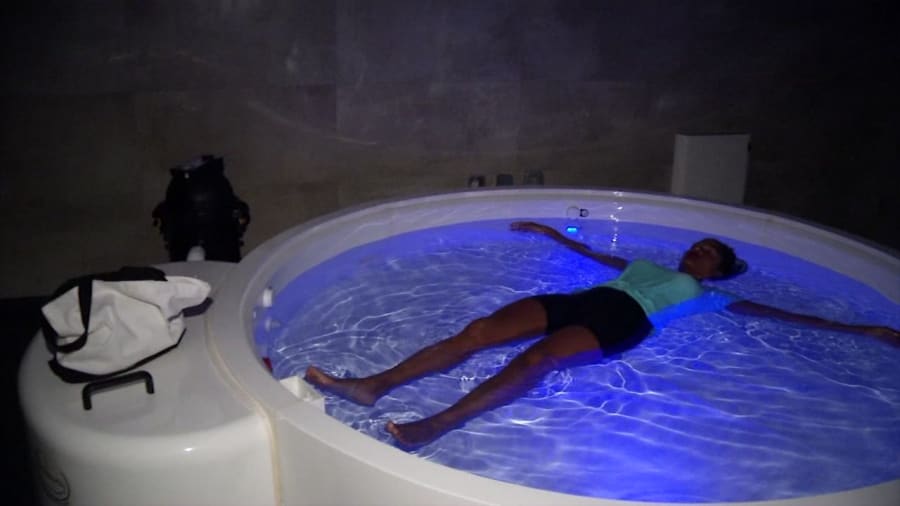JACKSONVILLE, Fla. – In a world where we are constantly inundated with information, people have to be intentional about finding moments of peace and quiet.
Sensory deprivation tanks are where the lights go out and you float in water loaded with Epsom salt. The salt keeps you afloat, allowing people to relax, clear their minds and release all their worries into the water.
At Be Still Float in Riverside, the owner says you get serenity without side effects. The heart of the studio is four different private float tanks, which are technically small swimming pools with more than 1,300 pounds of Epsom salt.
RELATED: Habits to Happiness: Meditation is easy and calms anxiety
I did a one-hour float session. The room is soundproof, the water matches your external body temperature, and I control the lights. When I turned them off, I was left floating in what feels like space. It does require me to relinquish control and when I do I lose all senses, eventually going into a deep meditative state.
When I came out my entire body and mind felt relaxed. I felt slower but not in a disturbing way, my body felt very peaceful.

Dr. Dmitriy Model, co-owner of Avecina Medical in Jacksonville, described a similar feeling. He tries to float weekly.
“It keeps you relaxed mentally, like for two, three days after I’ve floated, I feel like I’m indestructible,” Model said.
For Model, it helps with stress and relaxation but for Kathy Day, who floats monthly, it’s tackled something deeper.
“I was having anxiety a lot, and I just needed to relax,” Day said.
Day lost her mother two years ago and went into a state of depression that she said floating has lifted.
“If I feel myself starting to get all angsty, I am able to recall how I feel when I’m floating, and I just focus on that and I’m much calmer and much more focused,” Day said.
Gina Schimpff, owner of Be Still Float, started researching floating after she had children.
“Every time I had a child, my anxiety was even worse and I knew it wasn’t rational, and I never had it before. I remember my OB being like, ‘OK, yeah, it’s normal. You have this, here’s a prescription,’ and I was like, ‘I’m breastfeeding. I don’t want to take that,’” Schimpff said.
She believed there was a drug-free way to address her anxiety. Schimpff was intrigued by the work of Dr. Justin Feinstein.
Feinstein’s first study in 2018 looked at 50 patients with anxiety disorders and after a one-hour float session he found that all of them had a reduction in anxiety. Cleveland Clinic reports a float session can decrease stress, depression and anxiety disorders, while increasing feelings of optimism, helping you sleep better and even reducing chronic pain.
Local Psychologist Dr. Tracy Alloway can see the benefits as well. But she always warns there’s research that shows sensory deprivation tanks aren’t for everyone.
“It’s also been reported to be less beneficial for individuals with severe levels of depressive or clinical depression. Because again, back to this idea that when you empty your mind, if you are not skilled, or you don’t have the toolset, to know what’s healthy to put in place, you can then tend to go down a very dark path,” Alloway said.
It’s best to know your limitations. Schimpff believes when it works and if you make the investment in yourself, a simple float can be life-changing.
“Oh, my gosh, it is I feel like it’s my calling. It really is. I started out nurturing my family. And then I feel like I’m nurturing the community,” Schimpff said.
For more information on Be Still Float, visit https://www.bestillfloat.com/.


